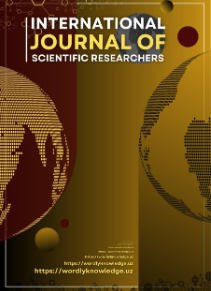ANALYSIS OF METHODOLOGIES TO MITIGATE LEXICAL INTERFERENCE IN B2 LEVEL ENGLISH LEARNERS
Abstract
Lexical interference poses a significant challenge for B2 level English learners, often leading to confusion and errors in communication. This study evaluates the effectiveness of various methodologies to mitigate lexical interference, focusing on explicit conjunction instruction. Employing both quantitative and qualitative data, the research explores how targeted teaching strategies can enhance learners' writing cohesion and comprehension. For B2 level English learners, the phenomenon of lexical interference can be a major obstacle to achieving fluency. But fear not! There are various methodologies that can help mitigate this issue and enhance your English language skills.
References
Dmitrienko, E. V., & Vlavatskaya, M. V. (2019). Internacionalnye slova kak problema lozhnyh druzej perevodchika [International words as a problem of the translator's false friends]. Nauka. Tehnologii. Innovacii : sb. nauch. tr. vol. 8 (pp. 626–630). NGTU.
Duran Escribano, P. (2004). Exploring cognition processes in second language acquisition: the case of cognates and false-friends in EST. Ibérica: Journal of the European Association of Languages for Specific Purposes (AELFE). vol. 7 (pp. 87–106).
Frunza, O. M. (2006). Automatic Identification of Cognates, False Friends, and Partial Cognates. School of Information Technology and Engineering Faculty of Engineering University of Ottawa.
Kuzmina, S. E. (2008). O ponjatii jazykovoj interferencii [On the concept of language interference]. Aktual'nye problemy filologii i pedagogicheskoj lingvistiki, 10.
Kuznecova, I. N. (1998). Teorija leksicheskoj interferencii: na materiale francuzskogo jazyka [The theory of lexical interference: based on the material of the French language] [Doctoral dissertation].
Merriam-Webster. Retrieved on 5th of June from https://www.merriam-webster.com/
Oldin, T. (2005). Crosslinguistic Influence and Conceptual Transfer: What are the Concepts? Annual Review of Applied Linguistics, 3–25.
O'Neill, M., & Casanovas Catalá, M. (1997). False Friends: A Historical Perspective and Present Implications for Lexical Acquisition. BELLS: Barcelona English Language and Literature Studies, 8, 103-151.
Shuhardt, G. (1950). Izbrannye stat'i po jazykoznaniju. [Selected articles on linguistics]. Izd. inostr. lit.
Al-Faki, I. M., & Siddiek, A. G. (2015). The effect of timely interference of English language teachers on the improvement of learners’ oral performance. International Journal of Applied Linguistics and English Literature, 2(6), 222-235.
Akulenko, V. V. (1961). Sushhestvuet li internacional'naja leksika? [Is there an international vocabulary?] Voprosy jazykoznanija, 3, 60-69.
Arce Medero, M. (2006). Spanish-English Cognates, False Cognates and Reading Proficiency among ESL College Students in Puerto Rico. ProQuest Dissertations and Theses.
Bodujen de Kurtenje, I. A. (1963). Izbrannye trudy po obshhemu jazykoznaniju [Selected works on general linguistics]. Yurait.
Calvo, N. (2005). Negative Language Transfer When Learning Spanish as a Foreign Language. Interlingüística, 16, 237-248.







